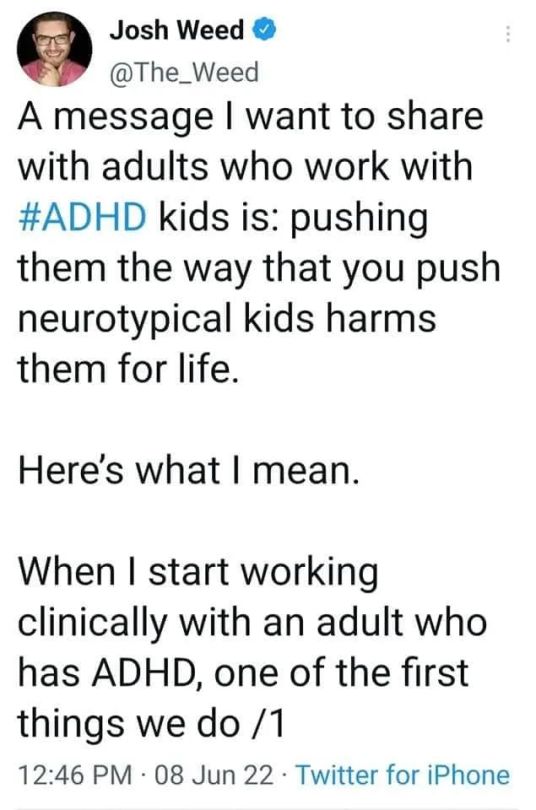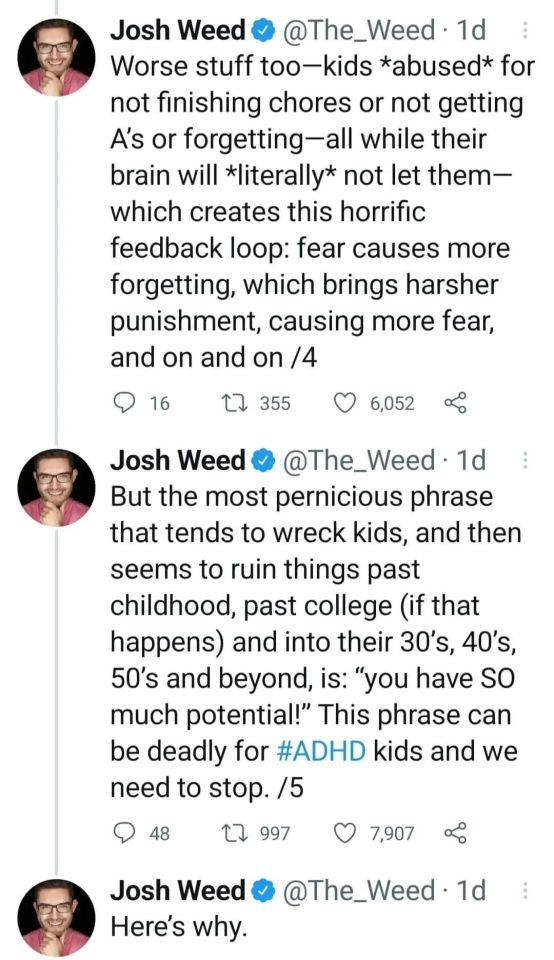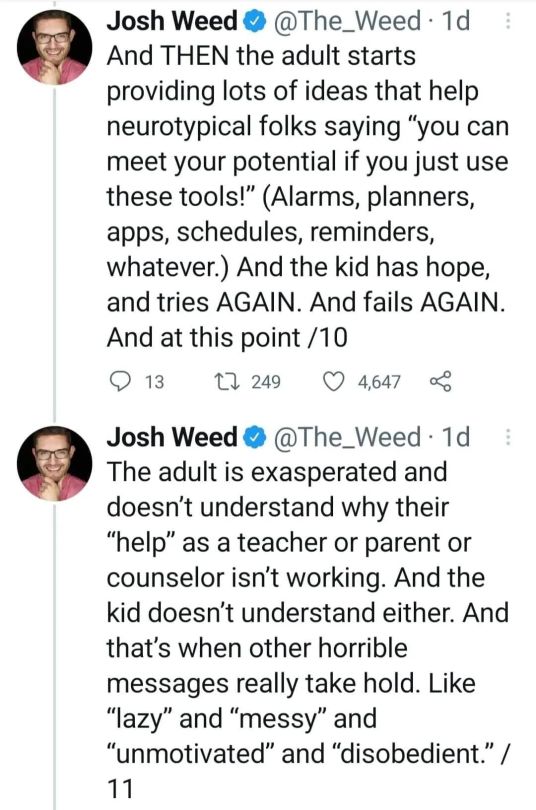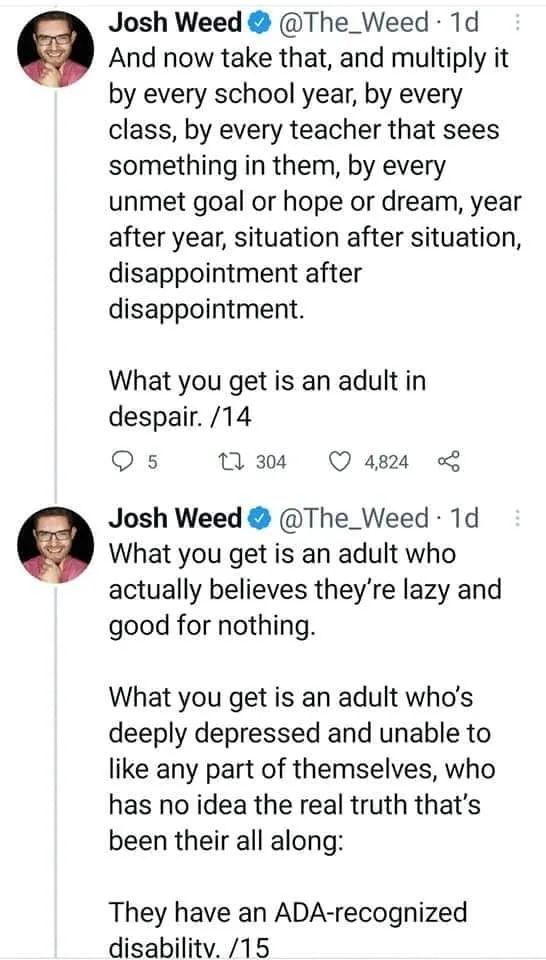Where To Start Your Research When Writing A Disabled Character
Where to Start Your Research When Writing a Disabled Character
[large text: Where to Start Your Research When Writing a Disabled Character]
So you have decided that you want to make a disabled character! Awesome. But what's next? What information should you decide on at the early phrase of making the character?
This post will only talk about the disability part of the character creation process. Obviously, a disabled character needs a personality, interests, and backstory as every other one. But by including their disability early in the process, you can actually get it to have a deeper effect on the character - disability shouldn't be their whole life, but it should impact it. That's what disabilities do.
If you don't know what disability you would want to give them in the first place;
[large text: If you don't know what disability you would want to give them in the first place;]
Start broad. Is it sensory, mobility related, cognitive, developmental, autoimmune, neurodegenerative; maybe multiple of these, or maybe something else completely? Pick one and see what disabilities it encompasses; see if anything works for your character. Or...
If you have a specific symptom or aid in mind, see what could cause them. Don't assume or guess; not every wheelchair user is vaguely paralyzed below the waist with no other symptoms, not everyone with extensive scarring got it via physical trauma. Or...
Consider which disabilities are common in real life. Cerebral palsy, muscular dystrophy, stroke, cataracts, diabetes, intellectual disability, neuropathy, multiple sclerosis, epilepsy, thyroid disorders, autism, dwarfism, arthritis, cancers, brain damage, just to name a few.
Decide what specific type of condition they will have. If you're thinking about them having albinism, will it be ocular, oculocutaneous, or one of the rare syndrome-types? If you want to give them spinal muscular atrophy, which of the many possible onsets will they have? If they have Ehlers-Danlos Syndrome, which one out of the 13 different types do they have? Is their amputation below, or above the knee (it's a major difference)? Not all conditions will have subtypes, but it's worth looking into to not be surprised later. This will help you with further research.
If you're really struggling with figuring out what exact disability would make sense for your character, you can send an ask. Just make sure that you have tried the above and put actual specifics in your ask to give us something to work with. You can also check out our "disabled character ideas" tag.
Here are some ideas for a character using crutches.
Here are some ideas for a character with a facial difference (obligatory link: what is a facial difference?).
If you already know what disability your character is going to have;
[large text: If you already know what disability your character is going to have;]
Start by reading about the onset and cause of the condition. It could be acquired, congenital, progressive, potentially multiple of these. They could be caused by an illness, trauma, or something else entirely. Is your character a congenital amputee, or is it acquired? If acquired - how recently? Has it been a week, or 10 years? What caused them to become disabled - did they have meningitis, or was it an accident? Again, check what your options are - there are going to be more diverse than you expect.
Read about the symptoms. Do not assume or guess what they are. You will almost definitely discover something new. Example: a lot of people making a character with albinism don't realize that it has other symptoms than just lack of melanin, like nystagmus, visual impairment, and photophobia. Decide what your character experiences, to what degree, how frequently, and what do they do (or don't do) to deal with it.
Don't give your character only the most "acceptable" symptoms of their disability and ignore everything else. Example: many writers will omit the topic of incontinence in their para- and tetraplegic characters, even though it's extremely common. Don't shy away from aspects of disability that aren't romanticized.
Don't just... make them abled "because magic". If they're Deaf, don't give them some ability that will make them into an essentially hearing person. Don't give your blind character some "cheat" so that they can see, give them a cane. Don't give an amputee prosthetics that work better than meat limbs. To have a disabled character you need to have a character that's actually disabled. There's no way around it.
Think about complications your character could experience within the story. If your character wears their prosthetic a lot, they might start to experience skin breakdown or pain. Someone who uses a wheelchair a lot has a risk of pressure sores. Glowing and Flickering Fantasy Item might cause problems for someone photophobic or photosensitive. What do they do when that happens, or how do they prevent that from happening?
Look out for comorbidities. It's rare for disabled people to only have one medical condition and nothing else. Disabilities like to show up in pairs. Or dozens.
If relevant, consider mobility aids, assistive devices, and disability aids. Wheelchairs, canes, rollators, braces, AAC, walkers, nasal cannulas, crutches, white canes, feeding tubes, braillers, ostomy bags, insulin pumps, service dogs, trach tubes, hearing aids, orthoses, splints... the list is basically endless, and there's a lot of everyday things that might count as a disability aid as well - even just a hat could be one for someone whose disability requires them to stay out of the sun. Make sure that it's actually based on symptoms, not just your assumptions - most blind people don't wear sunglasses, not all people with SCI use a wheelchair, upper limb prosthetics aren't nearly as useful as you think. Decide which ones your character could have, how often they would use them, and if they switch between different aids.
Basically all of the above aids will have subtypes or variants. There is a lot of options. Does your character use an active manual wheelchair, a powerchair, or a generic hospital wheelchair? Are they using high-, or low-tech AAC? What would be available to them? Does it change over the course of their story, or their life in general?
If relevant, think about what treatment your character might receive. Do they need medication? Physical therapy? Occupational therapy? Orientation and mobility training? Speech therapy? Do they have access to it, and why or why not?
What is your character's support system? Do they have a carer; if yes, then what do they help your character with and what kind of relationship do they have? Is your character happy about it or not at all?
How did their life change after becoming disabled? If your character goes from being an extreme athlete to suddenly being a full-time wheelchair user, it will have an effect - are they going to stop doing sports at all, are they going to just do extreme wheelchair sports now, or are they going to try out wheelchair table tennis instead? Do they know and respect their new limitations? Did they have to get a different job or had to make their house accessible? Do they have support in this transition, or are they on their own - do they wish they had that support?
What about *other* characters? Your character isn't going to be the only disabled person in existence. Do they know other disabled people? Do they have a community? If your character manages their disability with something that's only available to them, what about all the other people with the same disability?
What is the society that your character lives in like? Is the architecture accessible? How do they treat disabled people? Are abled characters knowledgeable about disabilities? How many people speak the local sign language(s)? Are accessible bathrooms common, or does your character have to go home every few hours? Is there access to prosthetists and ocularists, or what do they do when their prosthetic leg or eye requires the routine check-up?
Know the tropes. If a burn survivor character is an evil mask-wearer, if a powerchair user is a constantly rude and ungrateful to everyone villain, if an amputee is a genius mechanic who fixes their own prosthetics, you have A Trope. Not all tropes are made equal; some are actively harmful to real people, while others are just annoying or boring by the nature of having been done to death. During the character creation process, research what tropes might apply and just try to trace your logic. Does your blind character see the future because it's a common superpower in their world, or are you doing the ancient "Blind Seer" trope?
Remember, that not all of the above questions will come up in your writing, but to know which ones won't you need to know the answers to them first. Even if you don't decide to explicitly name your character's condition, you will be aware of what they might function like. You will be able to add more depth to your character if you decide that they have T6 spina bifida, rather than if you made them into an ambiguous wheelchair user with ambiguous symptoms and ambiguous needs. Embrace research as part of your process and your characters will be better representation, sure, but they will also make more sense and seem more like actual people; same with the world that they are a part of.
This post exists to help you establish the basics of your character's disability so that you can do research on your own and answer some of the most common ("what are symptoms of x?") questions by yourself. If you have these things already established, it will also be easier for us to answer any possible questions you might have - e.g. "what would a character with complete high-level paraplegia do in a world where the modern kind of wheelchair has not been invented yet?" is much more concise than just "how do I write a character with paralysis?" - I think it's more helpful for askers as well; a vague answer won't be much help, I think.
I hope that this post is helpful!
Mod Sasza
More Posts from Fishability and Others
every time anyone talks about liberation for the intellectually disabled in any real material way (i.e. creating plain-language educational resources accessible to adults reading on a first-grade level, detangling literacy from basic requirements to participate in society, destigmatizing inability to benefit from pedagogy, criticizing the construct of financial literacy as a necessary skill, etc etc etc), some chud comes along calling it "anti-intellectualism" and blabbing about how you're a morally inferior person if you only read middle-grade novels for fun, i'm so tired and we are never making it out
"gnc straight man being called a faggot doesn't experience homophobia" what the fuck are you talking about. there's absolutely no logic in anything like that. we have kids who literally killed themselves because of homophobic abuse in schools and you would dare to tell them it isn't homophobia that killed them because they weren't actually gay? insane. and so fucking cruel
can we have a conversation about how abysmal the state of "handicapped" parking spaces are in some places? ive been to two separate places in the last week that labeled a normal spot as an accessible one and just painted it blue. ive been to hospitals and doctors offices that had like 3 spots total. sometimes they're even more inconvenient than the regular spots because they were put somewhere stupid just to get away with the bare minimum. this sucks
I realized the other day that the reason I didn't watch much TV as a teenager (and why I'm only now catching up on late aughts/early teens media that I missed), is because I literally didn't understand how to use our TV. My parents got a new system, and it had three remotes with a Venn diagram of functions. If someone left the TV on an unfamiliar mode, I didn't know how to get back to where I wanted to be, so I just stopped watching TV on my own altogether.
I explained all this to my therapist, because I didn't know if this was more related to my then-unnoticed autism, or to my relationship with my parents at the time (we had issues less/unrelated to neurodivergency). She told me something interesting.
In children's autism assessments, a common test is to give them a straightforward task that they cannot reasonably perform, like opening an overtight jar. The "real" test is to see, when they realize that they cannot do it on their own, if they approach a caregiver for help. Children that do not seek help are more likely to be autistic than those that do.
This aligns with the compulsory independence I've noticed to be common in autistic adults, particularly articulated by those with lower support needs and/or who were evaluated later in life. It just genuinely does not occur to us to ask for help, to the point that we abandon many tasks that we could easily perform with minor assistance. I had assumed it was due to a shared common social trauma (ie bad experiences with asking for help in the past), but the fact that this trait is a childhood test metric hints at something deeper.
My therapist told me that the extremely pathologizing main theory is that this has something to do with theory of mind, that is doesn't occur to us that other people may have skills that we do not. I can't speak for my early childhood self, or for all autistic people, but I don't buy this. Even if I'm aware that someone else has knowledge that I do not (as with my parents understanding of our TV), asking for help still doesn't present itself as an option. Why?
My best guess, using only myself as a model, is due to the static wall of a communication barrier. I struggle a lot to make myself understood, to articulate the thing in my brain well enough that it will appear identically (or at least close enough) in somebody else's brain. I need to be actively aware of myself and my audience. I need to know the correct words, the correct sentence structure, and a close-enough tone, cadence, and body language. I need draft scripts to react to possible responses, because if I get caught too off guard, I may need several minutes to construct an appropriate response. In simple day-to-day interactions, I can get by okay. In a few very specific situations, I can excel. When given the opportunity, I can write more clearly than I am ever capable of speaking.
When I'm in a situation where I need help, I don't have many of my components of communication. I don't always know what my audience knows. I don't have sufficient vocabulary to explain what I need. I don't know what information is relevant to convey, and the order in which I should convey it. I don't often understand the degree of help I need, so I can come across inappropriately urgent or overly relaxed. I have no ability to preplan scripts because I don't even know the basic plot of the situation.
I can stumble though with one or two deficiencies, but if I'm missing too much, me and the potential helper become mutually unintelligible. I have learned the limits of what I can expect from myself, and it is conceptualized as a real and physical barrier. I am not a runner, so running a 5k tomorrow does not present itself as an option to me. In the same way, if I have subconscious knowledge that an interaction is beyond my capability, it does not present itself as an option to me. It's the minimum communication requirements that prevent me from asking for help, not anything to do with the concept of help itself.
Maybe. This is the theory of one person. I'm curious if anyone else vibes with this at all.
FYI to sick or disabled folks and those who assist or care for them: Simplicity patterns has a new line of adaptive sewing patterns. Designs include tops with port access, clothing with velcro closures, bags and cushions for mobility aids, bibs, chemo hats, and more.
I’m excited about these because they are the first patterns of this kind I’ve seen anywhere. And Simplicity patterns are great for beginning sewists, with very clear step by step instructions and illustrations.
Patterns can be purchased here: https://simplicity.com/simplicity/adaptive/
;
What able bodied authors think I, an amputee and a wheelchair user, would want in a scifi setting:
Tech that can regenerate my old meat legs.
Robot legs that work just like meat legs and are functionally just meat legs but robot
Literally anything that would mean I don't have to use a wheelchair.
If I do need to use a wheelchair, make it fly or able to "walk me" upstairs
What I actually want:
Prosthetic covers that can change colour because I'm too indecisive to pick one colour/pattern for the next 5+ years.
A leg that I can turn off (seriously, my above knee prosthetic has no off switch... just... why?)
A leg that won't have to get refitted every time I gain or loose weight.
A wheelchair that I can teleport to me and legs I can teleport away when I'm too tierd to keep walking. And vice versa.
In that same vein, legs I can teleport on instead of having to fiddle around with the sockets for half an hour.
Prosthetic feet that don't require me to wear shoes. F*ck shoes.
Actually accessible architecture, which means when I do want to use my wheelchair, it's not an issue.
Prosthetic legs with dragon-claw feet instead of boring human feet or just digigrade prosthetics that are just as functional as normal human-shaped ones.
A manual wheelchair with the option to lift my seat up like those scissor-lift things so I'm not eye-level with everyone's butt on public transport/so I can reach the top shelf by myself.
A prosthetic foot that lights up when it hits the ground like those children's shoes.

I'm working on my graduate thesis at Delta State University (fear the Fighting Okra!) and I'm looking adults with disabilities to take part in an online survey. The survey will probably take 15-20 minutes to complete and it's about how social friction is perceived in interactions between disabled and able-bodied people. So if you're 18 or older and self-identify as disabled or partially-disabled, I would love to hear from you on the survey:
"Let Me Get That For You": Analyzing Frictional Situations in a Disability Context (via Google Forms)
This research survey has received approval (IRB number 2025-037) from Delta State's Institutional Review Board. It will be live and accepting responses for the next 4-6 weeks depending on the number of responses received. But there's also something for you!

The survey itself is anonymous, though you can optionally enter a drawing for an Amazon gift card at the end of the survey. I can't buy a gift card for every response (as much as I would like to be able to do that) but I can give away a token of appreciation to a randomly selected portion of you. Email addresses are collected only for those who wish to participate in the raffle; any collected emails are deleted after each weekly drawing and only used to contact whoever won that week.
If you have any questions about the project, feel free to send me a message on tumblr!
-
 clownhonkbonk liked this · 1 month ago
clownhonkbonk liked this · 1 month ago -
 skrunklymoo liked this · 1 month ago
skrunklymoo liked this · 1 month ago -
 strife-of-cameloss reblogged this · 1 month ago
strife-of-cameloss reblogged this · 1 month ago -
 simswrites liked this · 2 months ago
simswrites liked this · 2 months ago -
 simswrites reblogged this · 2 months ago
simswrites reblogged this · 2 months ago -
 twilightscribbles reblogged this · 2 months ago
twilightscribbles reblogged this · 2 months ago -
 swiftadrift reblogged this · 2 months ago
swiftadrift reblogged this · 2 months ago -
 grimbeak liked this · 2 months ago
grimbeak liked this · 2 months ago -
 thearchavist liked this · 2 months ago
thearchavist liked this · 2 months ago -
 timeless-orchid liked this · 2 months ago
timeless-orchid liked this · 2 months ago -
 campercabeth reblogged this · 2 months ago
campercabeth reblogged this · 2 months ago -
 bejeweldjellyfich liked this · 2 months ago
bejeweldjellyfich liked this · 2 months ago -
 meruys liked this · 2 months ago
meruys liked this · 2 months ago -
 stormsong2 liked this · 2 months ago
stormsong2 liked this · 2 months ago -
 notasiderus liked this · 2 months ago
notasiderus liked this · 2 months ago -
 cepheusgalaxy reblogged this · 2 months ago
cepheusgalaxy reblogged this · 2 months ago -
 creativemonkey reblogged this · 2 months ago
creativemonkey reblogged this · 2 months ago -
 cosmicstrm liked this · 2 months ago
cosmicstrm liked this · 2 months ago -
 mmaurysiek reblogged this · 2 months ago
mmaurysiek reblogged this · 2 months ago -
 thewonderlandfox liked this · 2 months ago
thewonderlandfox liked this · 2 months ago -
 tylands liked this · 2 months ago
tylands liked this · 2 months ago -
 winsday09 liked this · 2 months ago
winsday09 liked this · 2 months ago -
 hyper-dorphin reblogged this · 2 months ago
hyper-dorphin reblogged this · 2 months ago -
 hyper-dorphin liked this · 2 months ago
hyper-dorphin liked this · 2 months ago -
 gwlxy liked this · 2 months ago
gwlxy liked this · 2 months ago -
 quillandinkdrop reblogged this · 2 months ago
quillandinkdrop reblogged this · 2 months ago -
 sorcerersage reblogged this · 2 months ago
sorcerersage reblogged this · 2 months ago -
 echiosbrain reblogged this · 2 months ago
echiosbrain reblogged this · 2 months ago -
 marbofmoorock liked this · 3 months ago
marbofmoorock liked this · 3 months ago -
 a-streetcar-named-fitzwilliams liked this · 3 months ago
a-streetcar-named-fitzwilliams liked this · 3 months ago -
 silvernevermind liked this · 3 months ago
silvernevermind liked this · 3 months ago -
 valencitaflaherty liked this · 3 months ago
valencitaflaherty liked this · 3 months ago -
 harakanpiilo reblogged this · 3 months ago
harakanpiilo reblogged this · 3 months ago -
 harakanvarpu liked this · 3 months ago
harakanvarpu liked this · 3 months ago -
 kiwibirbkat reblogged this · 3 months ago
kiwibirbkat reblogged this · 3 months ago -
 electric-eulogy liked this · 3 months ago
electric-eulogy liked this · 3 months ago -
 transherobrine reblogged this · 3 months ago
transherobrine reblogged this · 3 months ago -
 wvmstr liked this · 3 months ago
wvmstr liked this · 3 months ago -
 larnax reblogged this · 3 months ago
larnax reblogged this · 3 months ago -
 snaccksels liked this · 3 months ago
snaccksels liked this · 3 months ago -
 tieria-erde reblogged this · 3 months ago
tieria-erde reblogged this · 3 months ago -
 umbralmagnitude reblogged this · 3 months ago
umbralmagnitude reblogged this · 3 months ago -
 malocclusive reblogged this · 3 months ago
malocclusive reblogged this · 3 months ago -
 malocclusive liked this · 3 months ago
malocclusive liked this · 3 months ago -
 selkiesongss reblogged this · 3 months ago
selkiesongss reblogged this · 3 months ago -
 selkiesongss liked this · 3 months ago
selkiesongss liked this · 3 months ago

74 posts















